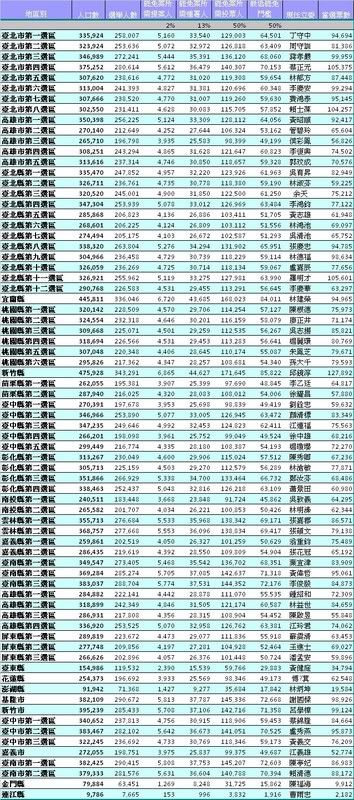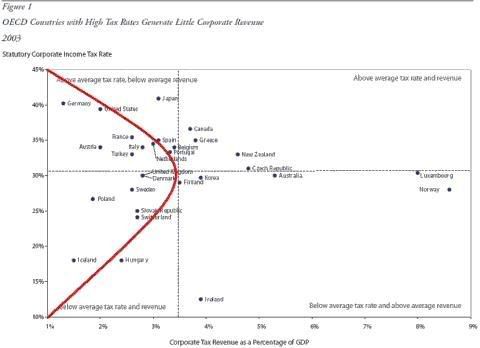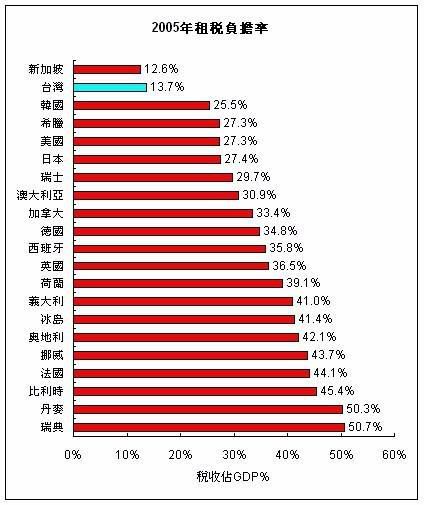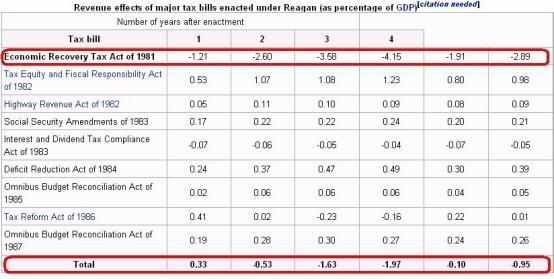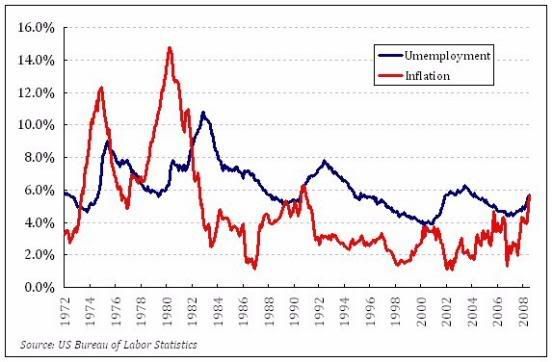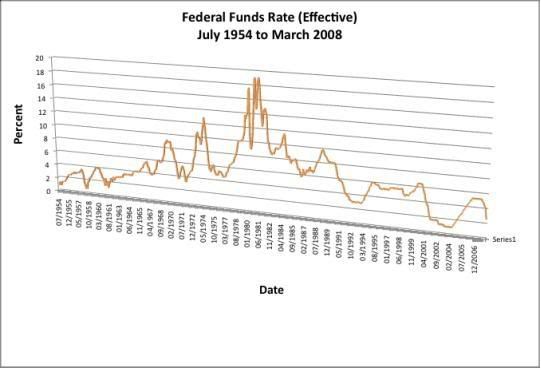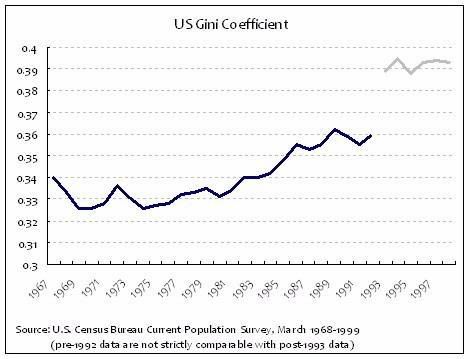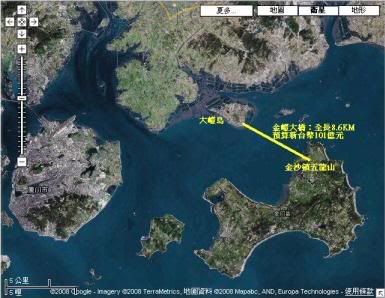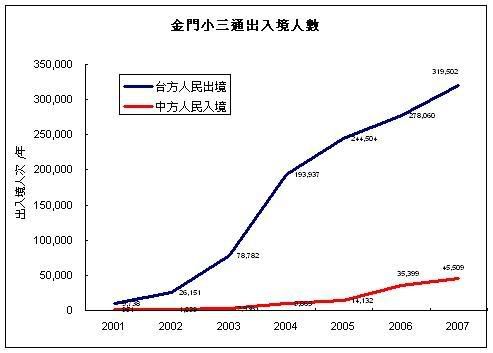2008/12/31
見鬼了,治安越來越好?
心驚膽顫之餘,總是想了解一下現在治安真正是惡化到什麼地步了。然而在我看了一下主計處網站公布的刑案發生率資料,嚇得差點從椅子上摔下來:啊是怎樣?七月半還沒過完喔?
九十六年2007 491,815
一 月 Jan. 40,860
二 月 Feb. 36,979
三 月 Mar. 40,942
四 月 Apr. 37,800
五 月 May 40,880
六 月 June 38,026
七 月 July 44,160
八 月 Aug. 43,248
九 月 Sept. 42,540
十 月 Oct. 44,871
十一月 Nov. 40,413
十二月 Dec. 41,096
九十七年2008 427,335
一 月 Jan. 41,784
二 月 Feb. 35,117
三 月 Mar. 40,960
四 月 Apr. 39,699
五 月 May 40,067
六 月 June 39,020
七 月 July 41,617
八 月 Aug. 41,867
九 月 Sept. 36,780
十 月 Oct. 36,940
十一月 Nov. 33,484
哇咧,自從驅五月就任以來,刑案發生率就穩定地在下降中,十一月的發生數竟然還是近年新低?那不就是失業和無薪假開始的時候?難不成是台灣人都窮到快被鬼 抓去了,要搶也沒東西搶,要偷也沒得偷,所以反而成了一個夜不閉戶,路不拾遺的大同社會?我看我真是錯怪了驅的努力,這一陣子電視新聞上看到那些社會案 件,一切都是錯覺,嚇不倒我的啊啊啊啊啊啊~~~~~
其實這種魔術數字我之前也在台中市的刑案統計中看過,只不過是反方向而已。1997年張溫鷹當選台中市長後,1998年台中發生刑案數由前一年的15,413件 暴增為38,660件,到現在還是全國刑案發生率最高的城市。難不成台中市在張溫鷹就任以前都是夜不閉戶的安樂窩,在張市長就任後就成了豺狼橫行的修羅 場?那麼民進黨執政真是品質低落啊!如果這裡有台中市民,不知道你們親身的感受如何?
我只能說,驅上任以後,真的讓很多數字都變漂亮了,這樣的改變,我這種一高二低的鄉下人沒有能力了解,也就只能問問高等的布爾焦亞中間選民有沒有感受到了?
2008/12/30
該不該去領消費券?
至少因為消費券,而產生額外的開支
應該用消費券去替代你本來就要花的開銷
把因而省下的錢存起來,以備不時之需
大家想一想,明年第一季還有多少人要失業
一個四口之家的經濟支柱失了業,要如何支撐家庭的開銷呢?
2007年家庭收支調查結果顯示
平均一個台灣家庭有3.38口人,消費支出為716,094元
如果四口之家算比例調整,再加上這一年的通膨算4%好了
現在一個四口之家一年花費平均是88萬元
假設你有失業6個月的危機,請問你手邊有44萬元的閒錢可以養家嗎?
如果你覺得會失業一年呢?你有88萬元的儲蓄嗎?
如果你沒有,那你現在還跟人家瘋要「擴大內需」?
先努力擴大你的存款金額再說吧!
2008/12/1
陳老師,好走!
這是今天新聞中最新的斬雞頭:
陳主委的發誓的內容是:
| 經建會主為陳添枝今天上午在立法院接受質詢表示, |
我本來還以為他夠Guts,會說0.64%是他的承諾說一不二,
大家如果記得消費券能挹注明年GDP高達0.64%是怎麼來的,
| 每人發放新台幣3600元,總預算需829億元, |
我個人倒認為這數學沒有那麼神秘,他們的算法大概就是 829億 除以今年GDP預估 12.66兆,大約就是0.64%左右(可能有扣掉一些印製、
首先,這種算式的第一個問題,就是假設台灣人民的消費傾向是10
這也還不夠讓陳老師捲舖蓋回學校浸淫學術。沒關係,
PMT(2%, 42, 100) = $3.54
100元的臨時性所得增加,一個理性的人一年只會多花3.54元而已。我仁慈一點,只算砍對半,0.43%剩
還有一個問題,如果我們來看看GDP的組成,我們知道:
Y(所得) = C(消費) + I(投資) + G(政府支出) + X(出口) - M(進口)
請問C上昇一元,Y就會跟著上升一元嗎?
依照主計處的國民所得統計,台灣今年估計民間消費將達7.6兆新
那麼,剛才我已經把陳主委的0.64%砍到剩0.21%了,
陳主委啊陳主委,這比起你設出來0.32%的門檻,
陳老師,我想,管理眾人之事的重責大任太屈煞您的長才了,
2008/10/13
地獄有幾層?
深藍色的是1926-1939之間的歷史走勢,紅色的是從200
很多在當年1929年發生的事最近都看得到了,資產泡沫破滅,
誠然信心是投資和消費的關係,
這件事說得容易,做起來可是要拿真金白銀去填無底洞,
當然,經濟蕭條是不是世界末日?我想,如果人類有自省的能力,
我現在最害怕的已經不是股市要跌到幾點了。我怕的是,
2008/10/8
套牢族的自我安慰文
道瓊工業指數的歷史資料顯示,若連續兩日累積跌幅達5%以上,
跌幅達7%,則下一交易日上漲機率達66%
上一次兩日累積跌幅超過7%是2002/7/22,隔天續跌1.
月底已經由谷底的7702漲回8736點
兩日累積跌幅最大是1929/10/29,共下跌23.6%,
兩日累積跌超過7%以後,隔天再創下最大跌幅是1929/11/
7.47%,結果隔天又跌了8.92%到200.74點。
高達21%

(下跌日數的意思,是我用幾天來計算跌幅,而不一定是連跌幾天)
另外,考慮道瓊最近是五日共跌了13%。
過去八十年裡,五日內跌超過13%只有27次,
持有20個交易日後(差不多一個月)有17次上漲,10次下跌。
平均反彈幅度約為5.09%。
當然是回不了本,但稍安勿燥總比立刻殺出好一點。

如果我們看不同的「災後」持有期間,
我們可以看出持有比較久不見得上漲的機會比較多,
但撐久一點,平均反彈的幅度會比較大。

但如果股災的幅度太大,雖然持有久一點翻本的機會比較大,
但大體而言五十個交易日內能翻回本錢的機會都很低

總之,歷史經驗告訴我們,急跌不用怕,盤跌才是真正的可怕。
大家既然都撐過了一大段的盤跌,何必為這兩天的崩跌慌了手腳?
去渡個假,過幾天像人的生活再回來看盤吧!
2008/9/18
China-Free T恤設計圖
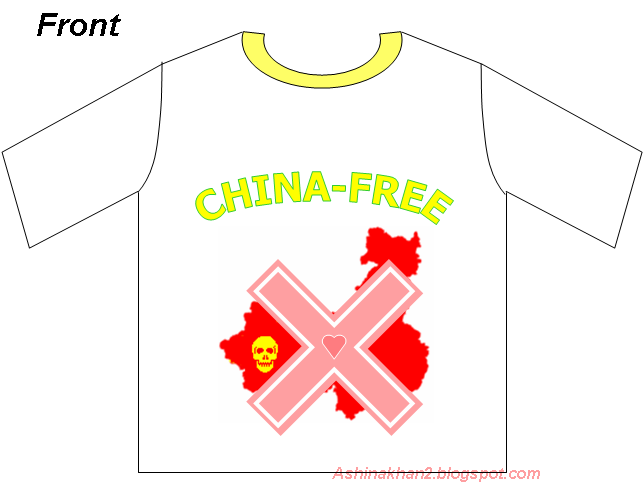
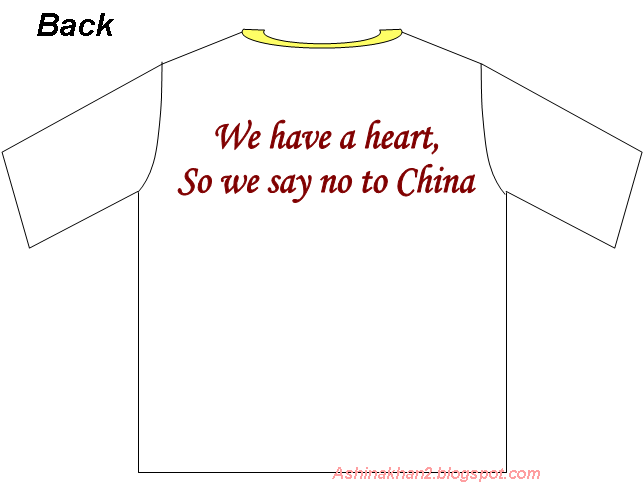
其實我比較苦惱的,是不知道怎麼樣用中文設計出漂亮的T恤圖案。我最初的標章設計
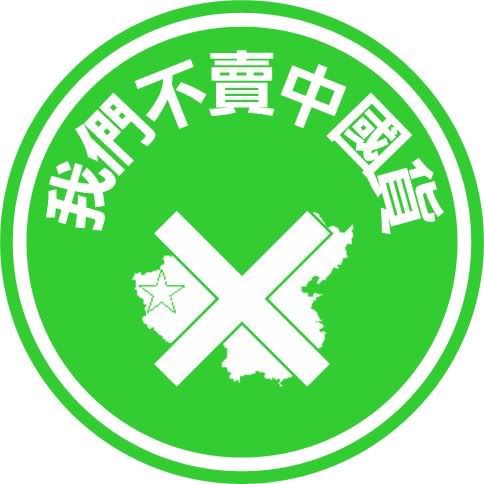
似乎沒有得到太多人青睞,也許是太單調了吧?不過我想,我的設計好不好不重要,最重要的是要用簡捷有力的方式,喚醒大家對中國黑心貨說NO的力量,這就夠了。
延伸閱讀:簡余晏部落格: 請愛用China-Free標章!
延伸閱讀:紙皮饅頭與China-Free - 知日部屋- 哈日反日不如知日
延伸閱讀:[HI-ON]鯨魚網站-China-Free
延伸閱讀:'China-free' label stokes import debate
2008/9/8
由你玩四年?
520以後九劉政府的諸多言行,包括馬冏的「633要2016年
現在100天成績單揭曉了。7月的CPI年增率直衝5.91%,
我們看看鄰國的狀況。南韓李明博因為747註定跳票,
只不過中華台北的九劉政府位子坐穩了,大屁股就再也挪不動,
說真的,這是台灣人民自己造的共業。這四年就算我們再痛,
| 第 70 條 總統、副總統之罷免案,經全體立法委員四分之一之提議, 前項罷免案宣告成立後十日內, |
呵呵,各位沒有看錯,要罷免總統只有這一條辦法。
那還有人說可以彈劾啊?首先,同樣是憲法增修條文第二條和第四條
| 第 2 條 立法院提出總統、副總統彈劾案,聲請司法院大法官審理, |
| 第 4 條 立法院對於總統、副總統之彈劾案,須經全體立法委員二分之一以上 |
首先,彈劾應該是針對總統有重大違法或瀆職情事,
好吧,完全執政,完全不用負責任嘛!如果馬冏真的要由他玩四年,
根據公職人員選舉罷免法第76條、81條和90條的規定:
| 第 76 條 罷免案以被罷免人原選舉區選舉人為提議人, 前項提議人人數應為原選舉區選舉人總數百分之二以上, … |
| 第 81 條 罷免案之連署人,以被罷免人原選舉區選舉人為連署人, … |
| 第 90 條 罷免案投票人數不足原選舉區選舉人總數二分之一以上或同意罷免票 |
恕我識淺,我的印象中台灣自有選罷法以來,
我看完以後,
說真的,在目前民進黨一蹶不振(
台灣人,自己造的業,自己擔吧!
2008/8/27
減稅救經濟???
說真的,身為一個每年繳稅繳得痛苦不堪的納稅猴,
事實上,政府也是經濟重要的參與者,一個社會要能正常運作,
我覺得「減稅救經濟」其實是一個過份單純的口號。
或者有人會說,降稅率不見得會降稅收,低稅率刺激經濟成長,
當然,台灣不在這張圖上,但看看這張圖我們來想想,
所以台灣是在拉弗曲線的哪一端?所以降稅率可以提振稅收?
雷根最大的1981減稅法案讓國庫稅收短收了3%(1987年美
以我國的狀況,據財政部的估算,
好,或許有人又說,雷根時代雖然為美國國庫留下了一屁股爛債,
很明顯的,是通膨先由1980年中近15%的水準降下來,到19
1980-1981之間Fed Fund Rate高到19%的歷史天價,很明顯的都在努力打通膨;
所以,減稅到底是不是今天台灣的當務之急呢?
說真的,我個人贊成減稅,而且一定要減到我。人同此心,
更重要的是,減稅要減誰的稅?
冷水坑院長的名言是:「台灣要成為亞太金融中心,
總而言之,要減稅可以,先減我們這些受薪階級的稅!如果辦不到,
2008/8/25
金嶝大橋,錢不是問題?
聯合報昨日新聞報導金嶝大橋馬屬意「五龍山到大嶝島」中指出
- 這條路線全長八點六公里、預估造價一○一億元。
- 金門縣長李炷烽表示,興建「金嶝大橋」
表達的政治善意非金錢可以形容,而且「錢」不是問題。
再者,這樣一條橋能服務多少人?
議者或以為,外地來的小三通需求,
我們且不論直航對小三通的影響,就假設金嶝大橋建好後,
8,760萬元?這個數字夠不夠大?好像很好很強大的樣子,
或者說這樣一條橋可以促進金門經濟發展,金門人有了錢多繳稅,
| 金嶝大橋的經濟效益 | |
| 年收入 過路費收入 8,760萬元 金門縣產值上升 ???? | 年支出 道路養護管理 7,000萬元 利息支出 25,000萬元 定期整修改建 ???? |
| → 何時能開始還本????? | |
我們就拿中國在今年五月通車,
所以錢是不是問題?他XX的從上帝創造世界以來,
所以我真他XX的覺得馬冏和李炷烽這種話可惡,
2008/8/21
Viva la Generalissimo!
If you believe the tides of democratization are irreversible, just look at Taiwan. On March 22, 2008, Ma Ying-jeou, a Harvard-educated politician with the ability of charming the crowd out of their souls with one single smile, won the presidential election with more than 7 million votes from people angry and frustrated with endless scandals marring Chen Shui-bian’s reign. People brought Kuomintang(“KMT”), once notorious with its corruption and one-part rule over China and then Taiwan, back in power in their own will. Technically it was a flawless democratic process, without mass vote-rigging, voter intimidation or other frauds observed. However, it is the same thing as what we saw in the Eastern Europe in late 1990’s to early 2000’s: ex-communist swept through all elections, and the king is back.
One thing is different: ex-communist winners embraced things they had once detested, at least as a disguise to cheer the crowd, but Kuomintang is enshrining things their voters once overthrew.
On August 17, the executive branch of Ma’s Government announced a plan to revert “Taiwan Democracy Memorial Hall” back to “Chiang Kai-shek Memorial Hall”, calling the renaming by the previous government illegal and should be voided. This monument, sometimes ridiculed as “Shrine of the Hairless One” (Chiang is hairless) and once a favored venue for demonstrations against KMT’s one-party rule, has become a hot spot for partisan conflicts after being remodeled and renamed in 2007 to honor the memory of agelong struggle for democracy by the Taiwanese people. Bloody violence by pro-China protesters during the removal of the old plaque shadowed that historical moment, and debates over the renaming decision continue to widen the rift between supporters of KMT and the pro-independence Democratic Progress Party (“DPP”) in Taiwan.
Generalissimo Chiang Kai-Shek led KMT from 1928 to 1975 and ruled China from 1928 to1949. After being defeated in the Communist Revolution, he fled to Taiwan and ruled it for another 26 years as the president of “Republic of China” in exile. Chiang imposed in Taiwan the longest period of martial law in modern history and ripped Taiwanese of political rights. More than 140,000 dissidents were either killed or imprisoned under his rule in Taiwan, and KMT enjoyed an unchallenged grip of political and economic powers. After taking into accounts of his deeds in China, Professor R.J. Rummel put him in the sixth place of the “Bloodiest Dictators in the Millenium” list. You may also want to know President Truman’s well-known quote about the Chiangs: “They’re all thieves, every damn one of them.”
Despite his bloody suppression of human rights, Taiwanese seem to have mixed feelings about this dictator. Before the late 1980’s, the KMT-controlled education system kept instilling students with “love for the leader”, and telling them “you are not ready for democracy yet, and dictatorship make this place safer.” Amazingly, such rhetorics have a profound impact till now. Some Taiwanese still believe the Generalissimo did protect Taiwan from Communist China and his policies did make this place stable and prosperous, even though decades ago some of their fathers and uncles never came back after Chiang’s gendarmes knocked on their door at midnight.
As Taiwan’s democratization process was gaining momentum since the 1990’s, ugly facts were being revealed and voices began to pop up everywhere calling for “liberation” of Taiwan from the memory of this dictator. Finally steps were taken as DPP won the presidential election in 2000. Chiang’s 27 secret retreats, featuring prime sceneries but inaccessible by ordinary people, were opened up to all visitors as parks and commercial hotels. Taoyuan International Airport, the largest airport of this country, is no longer named after the Generalissimo, and thousands of Chiang’s statues, once filling up every corner of Taiwan, were tore down and melt. The Memorial Hall seems to be the last battle to get rid of Generalissimo’s shadow.
Hard-core KMT supporters, mainly consisting of refugees from the 1949 Chinese Revolution and their descendents who enjoyed preferential treatments in the “good old days”, were infuriated by a series of “de-Chiang-ization” and gathered together to defend their last stand. Local media, mostly controlled by KMT allies even after DPP came into power, initiated propaganda campaigns denouncing such efforts as “dirty politics maneuvers” to profit from widening partisan rift that destabilize the society. Taipei city mayor, whose father is one of Chiang’s generals, preempted the central government by designating this 27-year-old hall a “historical site”, a status that makes unauthorized alternations unlawful. The KMT-controlled Legislative Yuan (parliament) also boycotted related budgets and legislations to stop the proposed renaming.
War did not end after DPP government devised a way to circumvent parliament’s boycott and renamed this monument in honor of Taiwan’s democratization. Local media kept heating up this event by attaching things like gossips and conspiracy theories to it. As the renaming was successfully tagged as a “DPP’s dirty maneuver” instead of a “public issue”, people soon got tired of it and reasons gave way to partisan emotions in related discussions.
Ma’s decision to restore the Generalissimo’s memorial hall is just a new move by one side, but not a real end to this war. While some Taiwanese may accept Ma’s rhethoric of “Look ahead, but don’t look back”, others still insist that harms done by Chiang have not been justly undone yet. Besides, many Taiwanese also cherish memories of agelong struggle for democratization, and to them the monument is where so many important things happened. Both sides honor conflicting memories in this special monument, and no unilateral move can successfully resolve this deadlock.
While the whole enshrining thing may look ridiculous to outsiders (just imagine if now there would be any German still worshipping Hitler, or any Italian worshipping Mussolini publicly), KMT might have a reason for that. For more than 50 years KMT has successfully established a saga linking Chiang’s image with the “social stability in the good old days”, which, as a prerequisite for economic prosperity, has been one of KMT’s major appeals in every election. Revaluation of Chiang’s era would be a direct challenge to this winning formula. However, as archives are being declassified and academic works are shedding more light on the other side of the past, Chiang’s revaluation is almost a certainty now, making KMT’s insistence look stupid.
So emotional attachment may be one last explanation for that. Those 1949 refugees once placed their hope on the Generalissimo, who gave them so much and kept promising to bring them home in triumph. Even though the false hope for return to glory is gone, their psychological reliance has not. Such reliance, strengthened by fears that dominance by native Taiwanese would mean disaster for 1949 refugees (which did not happen in Chen’s regime, but fear still remains), holds them together against any move to challenge Chiang’s “historical position”.
On the other hands, native Taiwanese, long taught to stay away from politics since the period of White Terror, care more about economic growth for next year than about such “partisan maneuvers”.
Taiwan’s example surely tells a story about how a notorious dictator can come back to posthumous glory after his kingdom is democratized. You can still hear them hail “Viva la Generalissimo!” Yes, the Generalissimo’s ghost is back in Taiwan, smiling at the extravagant banquet his disciples prepared for him.
2008/8/19
2008/8/16
這就是「主場優勢」?領教了!

看完台古之戰的精彩表現,除了心裡不認同之許多網友求好心切,大罵「台灣棒球已死」的過激言論外。想到昨天台中之戰的過程,更是覺得台灣隊真的是給人家「主場優勢」給婊掉的。
我們先回憶一下吳大主席晉見當今聖上恭領的玉旨
分會連吳宋胡稱台灣有「主場」優勢
我們再來看看這次北京奧運中國充份展現的主場優勢
中國主場優勢各國砲轟不公
瑞典摔跤名將怒摔銅牌不滿裁判不公判決痛失金牌
對手主帥指責裁判不公話里有話祝中國男排好運
觀眾變裁判靶場如馬戲團
裁判不公频传瑞典专家指责奥委会腐败
不知道這樣的「主場優勢」是如何影響台灣奧運代表們成績的?我們且不去談台中之戰主審判決準則的問題,畢竟裁判的專業不是那麼容易挑戰的。我們就談這次奧運棒球隊出發前,早就有許多人對14日台日夜場接15日台中早場的賽程安排提出質疑了。記不記得下面這些對話?
京奧/棒球賽程遭惡整? 綠:台灣面臨主場「憂勢」
奧運棒球賽/最晚場接最早場台灣隊確實休息最短
奧運棒球中華隊被惡整? 體委會:予以否認
體委會:京奧棒球賽安排選手可休息逾7.5小時
奧運棒球賽程安排棒協:對中華隊有利
《北京奧運》洪一中:賽程早有因應
好嘛!出來幫台灣隊喊不公平的人全被政府當局和媒體打成豬八戒,連洪一中在賽前都要講「早有因應」這種大話。結果呢?
休息不到5小時出戰大陸洪一中要求延後開打未果
京奧/輸中國洪一中:球員體力負荷過大
這是怎樣?賽前不是都說沒問題?早有因應?還有「主場優勢」?賽後幹嘛還要講這種話?我個人沒有看到十二局下那個失誤的影片(說真的,也不太忍心看)但聽看過的人說,那個失誤顯示球員體力其實明顯不行了。這種睡不到五小時「主場優勢」可真令人羨慕。那些體委會的官員,可知爾俸爾祿,民脂民膏?請問你們除了事前畫虎爛,事後忙裝死以外,到底為場上拼鬥的台灣健兒做了什麼沒有?更不要提那個拿了台灣人幾千萬血汗錢的吳經國,除了把行之有年T字入場的慣例順中國的意葬送了以外,對這件事可曾置任何一詞?台灣人啊,你們看到這群「好官」的嘴臉了嗎?
我愛棒球,我也希望台灣的棒運永遠能健康地成長。在我們寄望前線拼鬥的健兒們為台灣爭取國際賽的佳績同時,我們看看我們的政府給他們什麼支援,什麼待遇?
當然,說不定這件事又是阿扁的錯,再不然就是前線拼鬥的選手們自己不爭氣。絕對不是九劉政府的錯啦!
2008/8/14
One world, One dream, but No Truth
Soon after China had its best time at the Opening, which it expected billions to watch in awe, stories behind are rendering this proud presentation into a magnificent joke. The Giant Footprints over Beijing surely deserves a place in the Guinness World Records, and the mimed solo by the cute starlet Miaoke Lin is bringing this comedy to another height. What else? Deserted “Olympic Protest Parks” where Beijing shows its hospitality for human right activists, or the “Volunteer Cheerleaders” that fill the seats? Not to mention those empty Olympic promises. Beijing is surely full of wonders, but no truth.
Welcome to China, where everything is possible! Possibility is always the main ingredient of dreams, but what is the “One Dream” mantra they have been chanting? The spectacular Opening, where numerous individual performers are used to mimic display pixels (at fine resolutions!), is nothing more than a reprise of ancient imperial ceremonies where all barbarian tribes come to pay homage to the Heavenly Dynasty (in Chinese: “萬國來朝,四夷賓服”). So exactly whose dream is it? This great country may have many hands, but still only one collective mind that can think and dream. That is why they have only one dream: the dream of nationalism fevers. Dreams of a free Tibet, a free Eastern Turkestan, and an undisturbed Taiwan are simply not cherished here. Dreams of speech freedom, a viable civil society and open elections are not cherished here. Dreams of displaced Darfur refugees are certainly not cherished here either. Only the “One Dream” can be dreamt of, and now all the imperial subjects, and all the envoys from “barbarian tribes” are also chanting about that “One Dream” in Beijing.
And “One World”? Try traveling to rural areas in Hunan, Henan or even Tibet yourself to see if you really find people living in the same world as Beijingers do. “Equality” is a foul language in this country. If you are not impressed with the alerting Gini Coefficient of 46.9, you might want to take a look at the this picture of a little Tibetan girl who kept begging for candies for her friends:
I got this from a forwarded email (please kindly let me know if you are the original owner) with many beautiful pictures of Tibetan children. I am astonished by their poverty, especially when the PRC Government keeps telling us how quick Tibet’s economy has been expanding, and how China conquistadors have improved Tibetans’ life.
Tibetans are too far away and thus is not a good example? OK, try googling for “petitioners’ village” and see what you will find (better google for pictures, so that you can see what it actually looks like). Many Chinese still cherish fictional belief of imperial intervention in local injustice as a final relief (Yes, I really think such belief comes directly from classic novels and theater plays), so wronged people have a natural tendency to flock to Beijing for help. They lived in terrible condition in urban slums, not very far away from the masterpiece Birds’ Nest Stadium and Water Cubic Swimming Gym, spent years on their fruitless petitions and were consistently harassed by policemen and gangsters. Of course, Beijing got rid of such nasties just in time to greet the World in her prime. Now Beijing is one world, while those displaced petitioners live in another.


